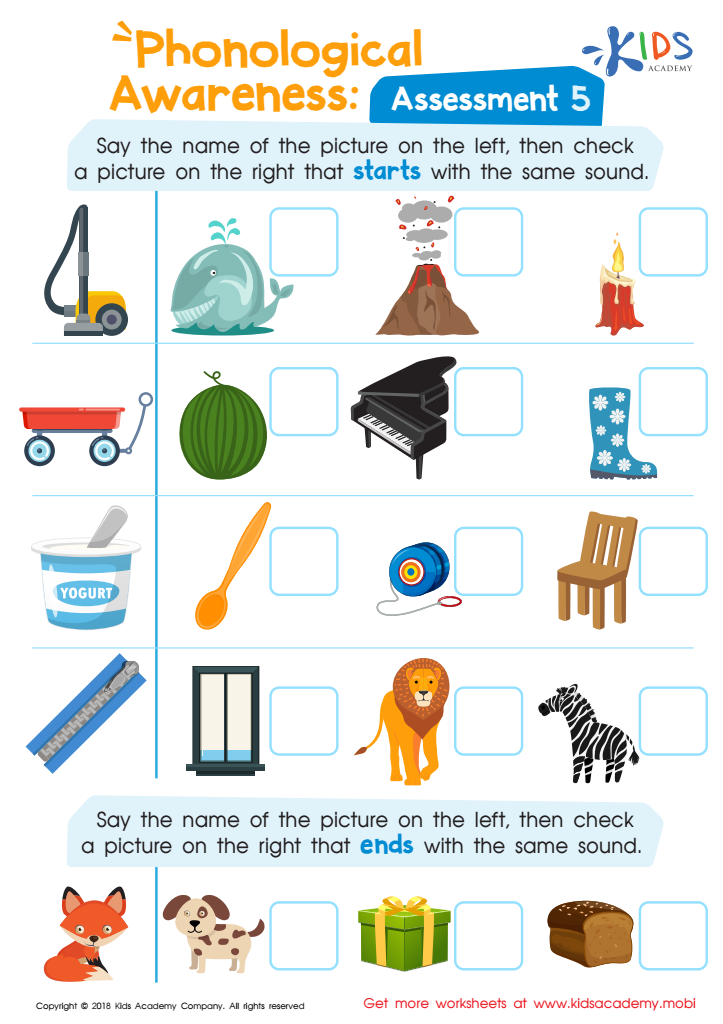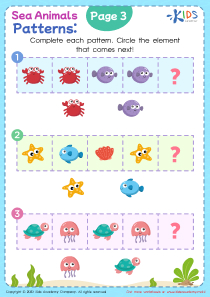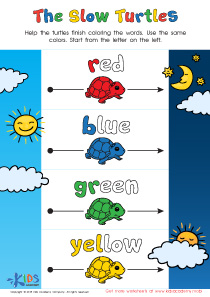Easy Elementary Phonics worksheets activities for Preschool
1 filtered results
-
From - To


Phonological Awareness: Assessment 5 Worksheet
Easy Elementary Phonics worksheets activities for Preschool are an invaluable resource for early childhood education, offering a multitude of benefits for young learners. These worksheets are designed specifically with preschool-aged children in mind, ensuring that the activities are both age-appropriate and engaging. The inclusion of Easy Elementary Phonics worksheets activities in a preschool curriculum can significantly enhance a child’s initial journey into the world of letters and sounds, setting a strong foundation for their future reading and writing skills.
One of the primary reasons these worksheets are so useful is that they introduce children to the basics of phonics in a fun and interactive way. Phonics, the method of teaching reading by correlating sounds with symbols in an alphabetic writing system, is crucial for early literacy. However, mastering it can sometimes be challenging for preschoolers. By incorporating enjoyable activities, such as matching games, letter tracing, and picture-based sound association exercises, Easy Elementary Phonics worksheets make learning appealing and less intimidating for young students.
Moreover, these activities cater to different learning styles. Whether a child learns best through visual, auditory, or kinesthetic methods, there is something in these worksheets that can engage and benefit them. For instance, coloring letters and images can help visual learners, while saying the sounds out loud as they work through the worksheets can aid auditory learners. The hands-on aspect of completing the worksheets is perfect for kinesthetic learners.
Additionally, Easy Elementary Phonics worksheets activities for Preschool encourage the development of fine motor skills. As children trace letters and draw lines to connect matching items, they are not only learning about phonics but also practicing holding a pencil and controlling their hand movements, which are essential skills for writing.
Lastly, these worksheets provide an excellent opportunity for parents and teachers to assess a child’s understanding and progress in phonics. They can identify areas where the child might need extra help, allowing for targeted support and intervention early in their educational journey.
In summary, Easy Elementary Phonics worksheets activities for Preschool are a key tool in fostering early literacy, accommodating various learning styles, developing fine motor skills, and facilitating personalized learning paths for young children. Their role in preparing preschoolers for a lifetime of reading and learning cannot be overstated.

 Assign to My Students
Assign to My Students
















